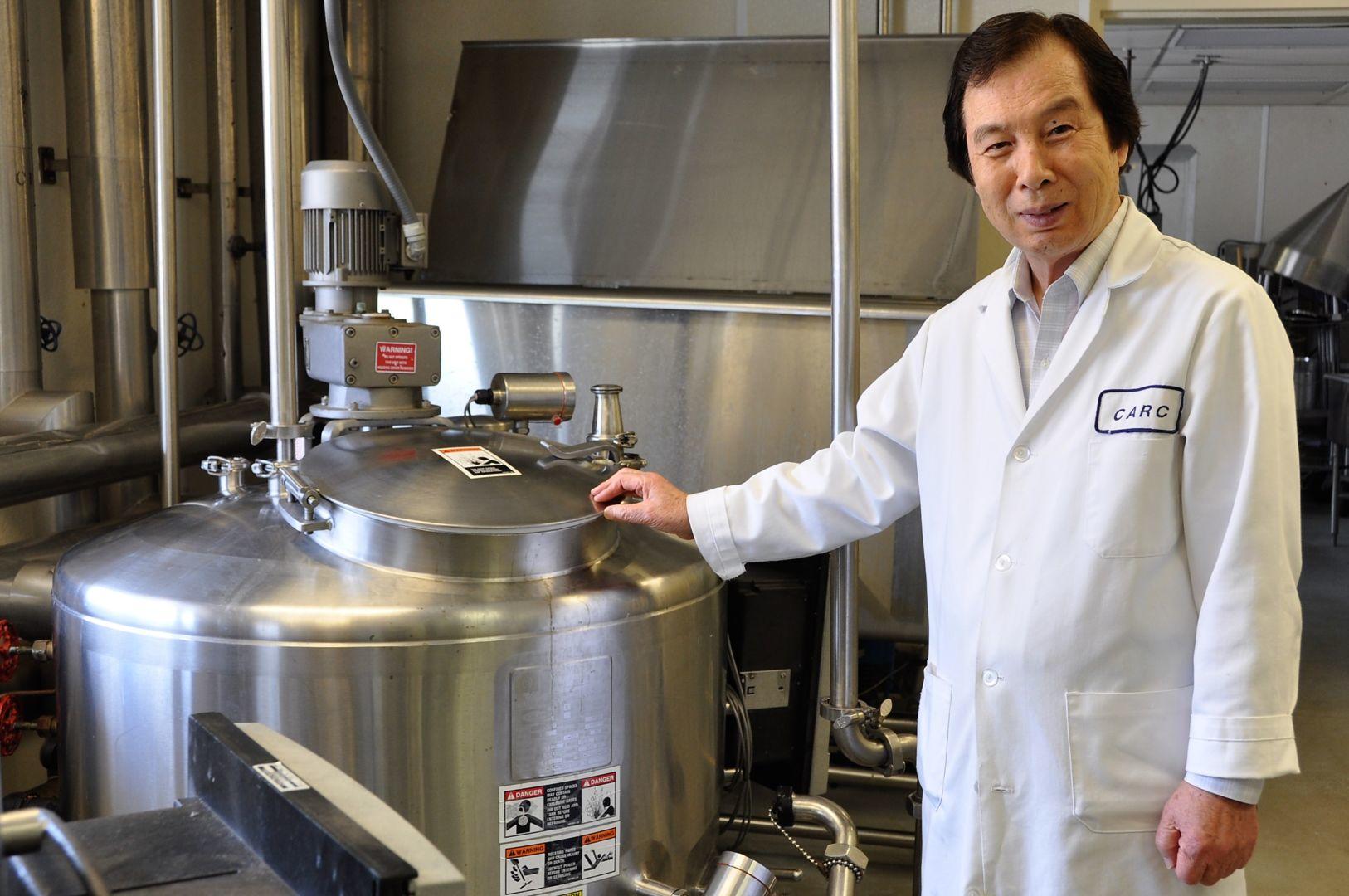The American Dairy Science Association (ADSA) is honoring Dr. Young Park, a Fort Valley State University professor of food science, with a prestigious award for his expertise in dairy goat production and dairy technology research.
Park is a recipient of the 2018 ADSA Fellow Award. As the first to receive this recognition among 1890 Land-Grant Universities and Historically Black Colleges and Universities (HBCU), he said this award is one of the highest honors for his professional career.
“It’s very special and extraordinary. I feel like I have reached the peak of my career in dairy science,” Park said. A winner of two former ADSA accolades on research and teaching, he said the competitive Fellow Award covers all areas involving the dairy industry, dairy education and dairy research.
The ADSA Fellow Award recognizes ADSA members in the dairy foods and dairy production divisions who rendered distinguished service to the dairy industry for more than 20 years. The winner must have made exceptional contributions to the dairy industry, to a dairy-related discipline or to the ADSA.
During his 37-year teaching and research career in higher education and the past 21 years at FVSU, Park’s research contributions to the dairy goat industry included preserving and freezing goat milk cheese for year-round marketing to consumers.
The food science professor said goat milk production is seasonal from April to early November. “When dairy goat farmers do not produce milk, they cannot market their product and then they lose income. If consumers do not get their product continuously, then they lose interest. The seasonality of goat milk production is the biggest drawback for the sustainability of the dairy goat industry,” Park said.
To help limited-resource dairy goat farmers with sustaining their business during the off-season, Park discovered that semi-hard or hard textured goat cheeses can be frozen and stored up to five years. After thawing, consumers should eat the cheese within four weeks due to the deterioration of the product. “Goat farmers can market their cheeses during the off-season for year-round sales, and consumers can have continuous availability of the product,” Park said.
In addition to his research activities in the laboratory, Park wrote more than 350 publications during his career, with eight books focusing on milk and the bioactive and nutritional benefits of dairy products. Some institutions, including Harvard Medical School, adopted one of his books, “Handbook of Milk of Non-Bovine Mammals,” as a textbook.
The ADSA is an international organization of educators, scientists and industry representatives who are committed to advancing the dairy industry. The organization will present the Fellow Award to Park in June during its annual meeting in Knoxville, Tennessee.
For more information about the ADSA, visit https://bit.ly/2I3O9z6.

